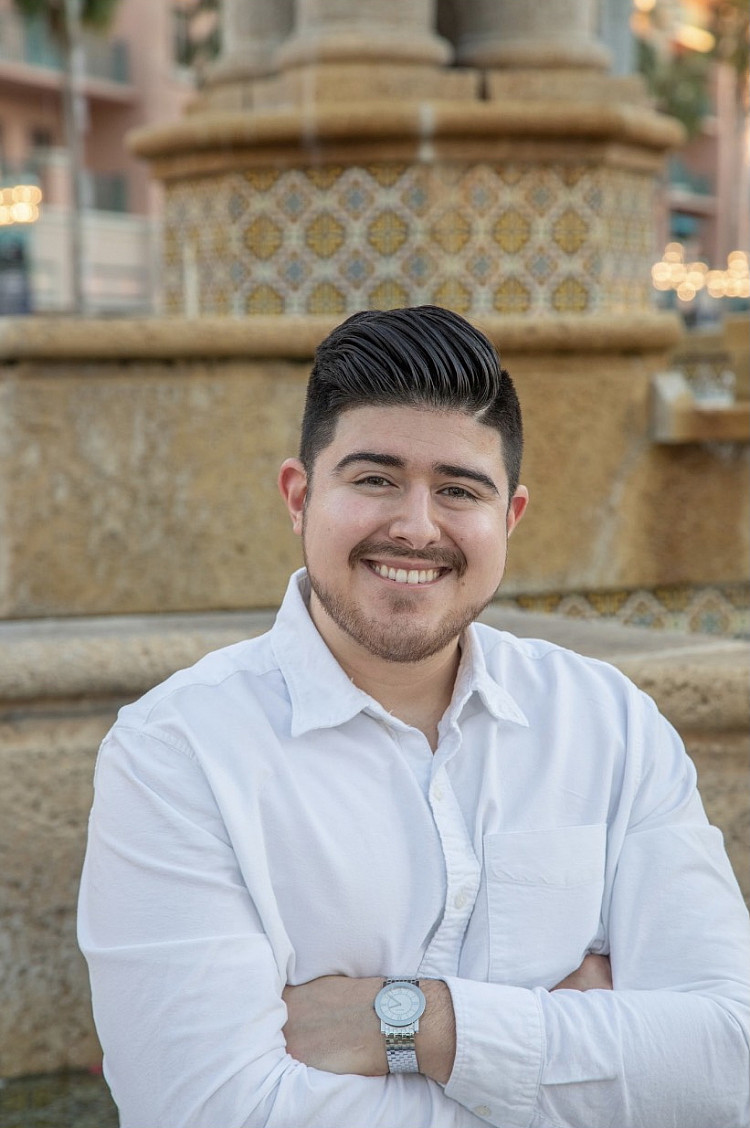Michael Allen
The sheer beauty of Lewis & Clark’s law campus takes your breath away. It is a well-respected legal institution nestled in the middle of a pristine Pacific Northwest forest.

Degree and Class Year
Program Type
Hometown
Undergraduate/Graduate School(s)
Areas of legal interest(s)
What three words would you use to describe L&C?
Brief Background:
My family and I moved to Portland, Oregon, from the Bay Area when I was in elementary school, so I consider myself a Portland native. Before law school, I graduated from George Fox University with a bachelor’s degree in philosophy and a pre-law concentration. After college, I started a project business managing intellectual property licenses and simultaneously took other jobs to support my family.
What made you want to go to law school?
I have always had a strong sense of justice and understood that attorneys play a central role in our laws, government, and individual rights. Pairing these traits with an interest in constitutional law, I knew attending law school was inevitable. While I was not committed to pursuing one particular practice area before attending law school, I knew that becoming an attorney was an avenue to pursue justice and make a positive impact in my community.
Why did you choose Lewis & Clark?
I married my wife two weeks after graduating college, and we became pregnant soon after. With my young daughter and my wife’s work situation, I knew that I needed to attend a law school in Oregon so we could stay close to family. I applied to and visited Willamette Law School, University of Oregon Law, and Lewis & Clark Law. After visiting Willamette and the University of Oregon, I did not have a clear preference. Lewis & Clark was the last school I visited, and that visit made my decision easy. The sheer beauty of Lewis & Clark’s law campus takes your breath away. A well-respected legal institution nestled in the middle of a pristine Pacific Northwest forest. After speaking with the admissions office about Lewis & Clark’s various programs and resources, I knew Lewis & Clark was the school for me.
What’s your favorite class? Why?
My favorite class is Constitutional Law II with Professor Oleske. Constitutional Law II covers individual rights and truly helps demystify one of the most controversial areas of law and politics. Professor Oleske teaches this course with an incredible level of expertise and professionalism. While the reading can be dense at times, Professor Oleske methodically walks his students through the cases with his doctrinal background on full display. The icing on the cake is the final exam. While some dread final exams, Professor Oleske’s Con Law II exam is exciting and draws on current events for the students to show their knowledge.
Tell us about your involvement and leadership with the Federalist Society. How does this work complement your academic experience?
I care deeply about the Constitution and originalism, so naturally, I wanted to join a student organization centered around those issues. During my 1L year, I noticed that Lewis & Clark had an inactive Federalist Society student chapter. I then contacted the last known chapter president, a 3L, and we discussed getting the organization active on campus again. Since then, we have established the Federalist Society as an active student organization with many excited new members, and we have big plans for campus events and student interaction. My work as president of the Federalist Society has complemented my academic experience by allowing me to foster intellectual diversity at Lewis & Clark by holding events addressing key issues of Constitutional law and public policy. Although any student can join, I think the Federalist Society provides a rich community for more conservative and originalist-minded law students to call home. After I graduate, I look forward to passing the baton to the next generation and seeing the positive impact they have on student dialogue.
More Admissions at Lewis & Clark Law Stories
Law School Admissions is located in Gantenbein on the Law Campus.
MSC: 51
email lawadmss@lclark.edu
voice 503-768-6613
fax 503-768-6793
toll-free 800-303-4860
Law School Admissions
Lewis & Clark Law School
10101 S. Terwilliger Boulevard MSC 51
Portland OR 97219

